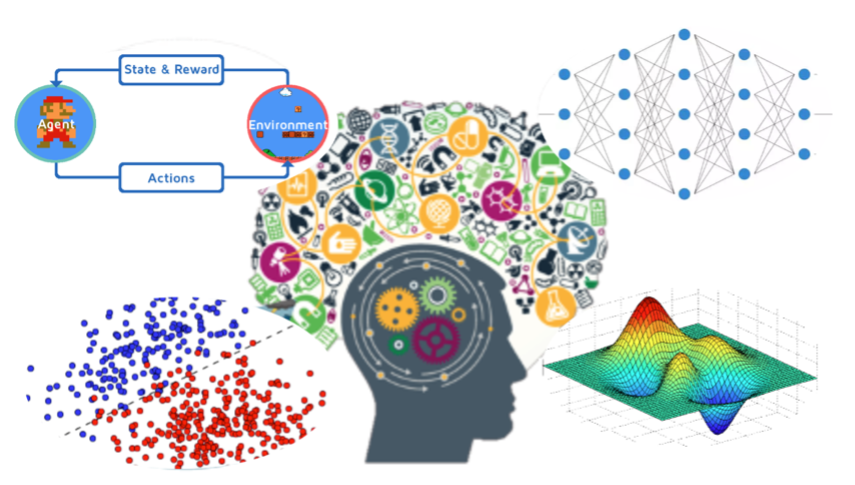ECSE 4840 Introduction to Machine Learning
 |
Course Information
Meeting Times: Mon Thu: 2:00 PM – 3:20 PM
Classroom: Greene Building 120
Instructor: Tianyi Chen; Office Hours: Wednesdays at 5 pm – 6 pm
Teaching Assistant: Heshan Fernando; Office Hours: Tuesdays at 4 pm – 6 pm
Course Description
A broad introduction to statistical machine learning. Topics include supervised learning: generative/discriminative learning, parametric/non-parametric learning, neural networks, support vector machines; unsupervised learning: clustering, dimensionality reduction, kernel methods; learning theory: bias/variance tradeoffs, practical advice; online learning and reinforcement learning. Recent applications of machine learning, such as to data mining, robot navigation, speech recognition, image processing, and signal processing.
Prerequisites
This course is intended for qualified undergraduate students with a strong mathematical and programming background. Undergraduate level coursework in linear algebra, calculus, probability, and statistics is suggested. A background in programming (e.g., Python and Matlab) is also necessary for the problem sets. At RPI, the required courses are MATH 2010 and ESCE 2500, or permission by instructor.
Grading Criteria
Homework Assignments: total 8, 40%
Term Exams: total 2, 30% + 30%
Gradescope: We will use Gradescope to collect homework submissions. The TA will manually grade your submission, and you will receive feedback explaining your final marks.
Course Content
1. Review of probability and linear algebra.
2. Supervised learning setup.
3. Perceptron. Exponential family. Generalized linear models.
4. Gaussian discriminant analysis. Naive Bayes.
5. Support vector machines.
6. Kernel methods. Neural networks.
7. Bias - variance. Regularization.
8. K-Means. Gaussian Markov Model. Expectation maximization.
9. Principal and independent component analysis.
10. Online learning and regret analysis.
11. Markov decision process
12. Value iteration and policy iteration